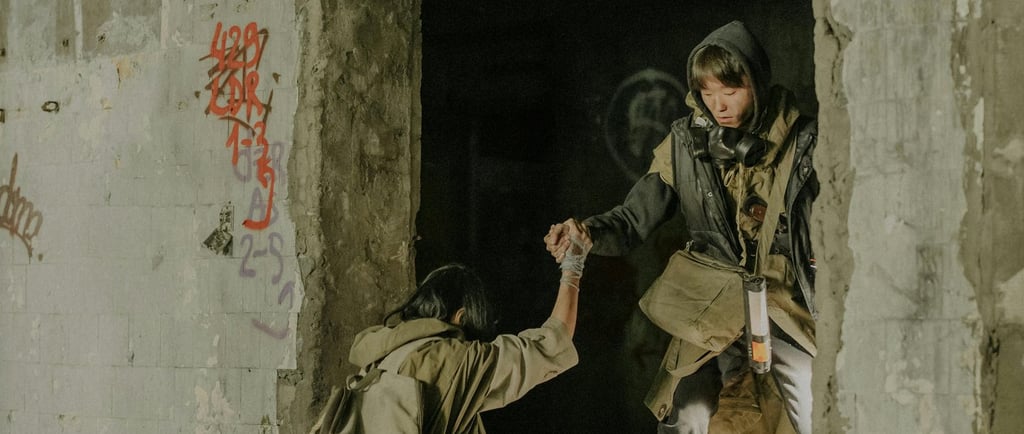Scavenging in Abandoned Cities: Finding Safe Food
FOOD SURVIVAL


Why Urban Food Scavenging Matters
In a city that has been abandoned after disaster or war, food supplies are hidden all around you. While the wilderness offers plants, fish, and animals, urban environments hold canned goods, packaged items, and preserved foods that may last long after shops are deserted. Learning how to scavenge safely prevents wasted effort and protects you from illness or injury.
Best Places to Search
Grocery stores and markets are obvious targets, but they are often picked clean quickly. Less obvious places usually hold more surprises. Office kitchens, vending machines, warehouses, schools, and hospitals often store food supplies. Apartment buildings may contain pantries full of cans that others overlooked. Even cars may have snacks or bottled water left behind. Always search where others might not think to look.
Prioritizing Non-Perishables
In an urban survival situation, your best allies are foods that last. Canned goods, sealed dried pasta, rice, beans, powdered milk, and instant noodles can survive for years if stored properly. Vacuum-sealed packs of jerky or dried fruit are also valuable. Fresh bread, dairy, or meat spoil quickly and are rarely safe unless recently abandoned. Prioritize foods that were sealed, protected from pests, and stored in cool, dry areas.
Checking for Spoilage
Just because food is packaged does not mean it is safe. Before eating, inspect every item carefully. Swollen or leaking cans are dangerous, as they may carry botulism. Mold on bread or grains is a clear sign to discard. Foul odors or strange colors also signal contamination. Trust your senses. Eating spoiled food in a survival setting can leave you too weak to continue, or even kill you.
Hidden Sources People Forget
Many survivors overlook sources of nutrition that are not obvious. Pet food, especially canned dog or cat food, is usually safe for human consumption and contains valuable calories. Condiments such as peanut butter, honey, and jam last for years. Sugar, salt, and flour can also remain usable long after packaging is torn, provided they are kept dry. Even cooking oil can provide much-needed energy if it has not turned rancid.
Tools for Scavenging
Opening sealed food without proper tools can be difficult. A strong knife, multitool, or improvised sharp edge is essential for cutting cans or packaging. Rocks, bricks, or heavy metal can also crack open stubborn containers in an emergency. Carrying a small pack to store what you find allows you to keep moving without dropping supplies. Gloves are helpful too, since broken glass, sharp metal, and contaminated surfaces are common hazards.
Safety in the Urban Environment
Scavenging is not only about finding food but also about avoiding danger. Collapsing buildings, broken staircases, and hidden holes can injure you quickly. Wear sturdy shoes, move cautiously, and listen for signs of instability. In conflict zones, be aware of traps or hostile people. Never linger too long in one place. Collect what you need and move on.
Using Fire for Extra Safety
Even when food seems safe, cooking can add another layer of protection. Heating canned goods, rice, or beans ensures bacteria are destroyed. Boiling dried grains or pasta in clean water makes them easier to digest. Fire also helps improve taste, which can lift morale during stressful times. If you cannot make a fire, at least try to dry out damp foods in sunlight before eating.
Managing and Stretching Supplies
Once you have scavenged food, ration it carefully. Eat the items most likely to spoil first, saving canned or sealed goods for later. Stretch meals by combining small amounts of high-calorie food with foraged greens or edible insects. Keep track of what you have and where you found it, since returning to reliable locations can save time. Waste nothing, because in survival every crumb counts.
Food Is More Than Fuel
Beyond nutrition, scavenged food provides comfort. Finding a jar of honey, a chocolate bar, or even a familiar snack can raise morale and remind you of normal life. This psychological boost is just as important as calories. It reduces fear, restores energy, and keeps your mind focused on survival instead of despair.
Making the City Your Storehouse
Abandoned cities may appear lifeless, but they are full of hidden food if you know where to look and how to stay safe. Prioritize sealed, non-perishable items, trust your senses, and move cautiously through dangerous spaces. With patience and observation, urban scavenging can turn ruins into a pantry that sustains you through hardship.